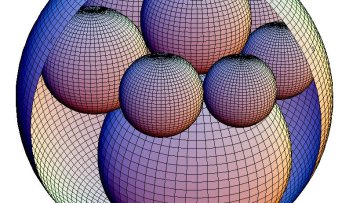16:00
Classifying Higgs bundles, stable and unstable
Abstract
The aim of this talk is to describe the classification problem for Higgs bundles and to explain how a combination of classical and Non-Reductive Geometric Invariant Theory might be used to solve this classification problem.
I will start by defining Higgs bundles and their physical origins. Then, I will present the classification problem for Higgs bundles. This will involve introducing the "stack" of Higgs bundles, a purely formal object which allows us to consider all isomorphism classes of Higgs bundles at once. Finally, I will explain how the stack of Higgs bundles can be described geometrically. As we will see, the stack of Higgs bundles can be decomposed into disjoint strata, each consisting of Higgs bundles of a given "instability type". Both classical and Non-Reductive GIT can then be applied to obtain moduli spaces for each of the strata.




